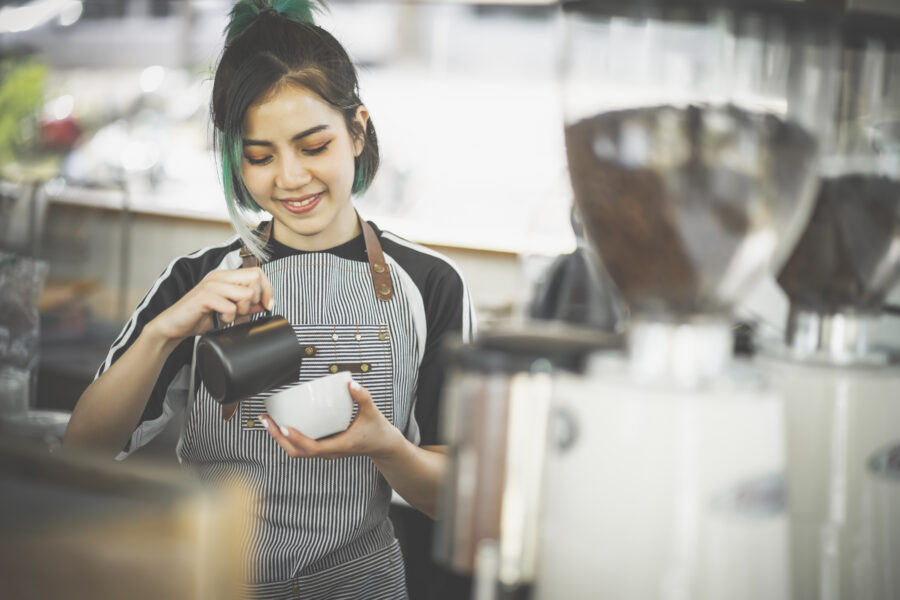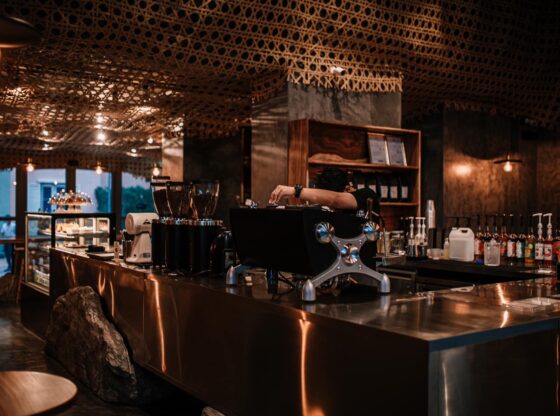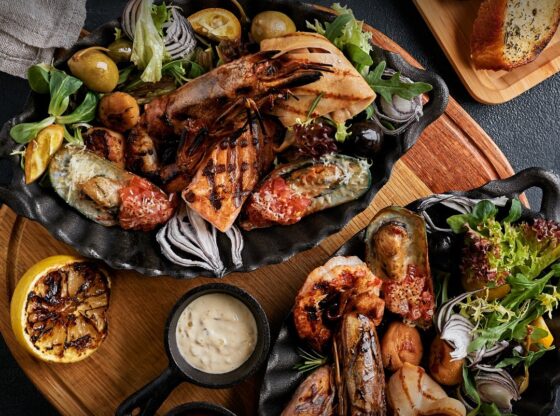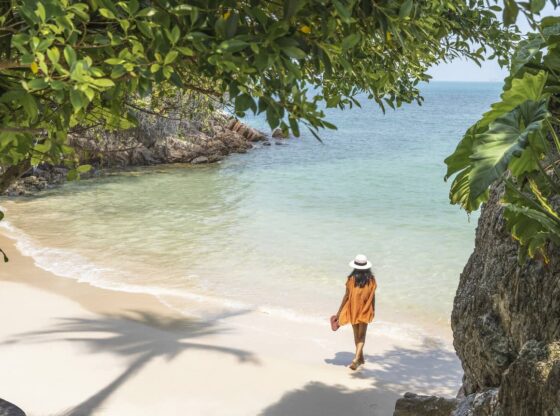![]()
Thailand is one of the top 25 coffee producing countries in the world – and the third-largest in Southeast Asia.
Alongside improving coffee production, there is also a burgeoning specialty coffee scene in Thailand. In most cities there are a growing number of high-end coffee shops and roasters. Additionally, interest in coffee education, competitions, and auctions is also increasing – solidifying Thailand as an emerging specialty coffee market.
Compared to other producing countries in Asia, Thailand is relatively new to growing coffee. Although arabica plants were first introduced to the country in 1849, commercial coffee production didn’t take off until the 1970s.
During this period, in partnership with the United Nations, King Bhumibol Adulyadej launched a series of initiatives to support local communities in northern regions to grow alternative cash crops to opium poppies. By 1976, Thailand had started to export coffee – albeit mostly lower-quality robusta.
Most robusta is grown in southern Thailand, while the tropical climate in the northern regions is more suited to producing arabica. The country has always produced more robusta, but rising demand for high-quality Thai-grown coffee means more farmers are planting arabica.
Between 2017 and 2019, around 65% of coffee-growing land was for robusta, and 35% for arabica, however, between 2020 and 2022, this changed to around 59% and 41%, respectively.
Thailand grows significantly more robusta than arabica, meaning there often isn’t enough arabica for domestic consumption [so most of it is exported].
Traditionally, Thailand is a tea-drinking country. However, alongside instant coffee, certain coffee drinks are also popular among consumers – including the Café Boran (or Kafae Boran). First created during the 1940s as a more affordable beverage for the masses, the drink includes dark roast robusta combined with a number of other roasted grains, such as; Corn Brown Rice, Sesame, Soy Beans and Tamarind seeds. The mixture is placed inside a cotton cloth and steeped in hot water. Most people then add condensed or evaporated milk to add sweetness and counteract some of the more bitter flavours.
Oliang (or Thai iced coffee) is also popular in the country. Often sold by street vendors, the drink can be customised in a number of ways, including adding fresh or condensed milk.

It’s clear that Thailand’s coffee culture has changed significantly over the past several decades.
One of the main turning points for Thai coffee culture was around 20 to 30 years ago when big hotel chains started to import roasted coffee. Following this, multinational coffee brands like Starbucks launched in the country, with smaller independent coffee shops also opening some years later.
AN INCREASING FOCUS ON EDUCATION, COMPETITIONS & AUCTIONS

In many specialty coffee markets around the world, industry professionals and consumers alike are showing more and more interest in education and events – and Thailand is no exception.
Piyarat Prakobvanichkul is the Managing Director of Coffee Therapy in Thailand.
“Specialty coffee has been around for almost ten years in Thailand, but it became more prominent some seven years ago,” she says. “People are now interested to learn more about specialty coffee – not only in Bangkok, but across the country.
A growing number of people want to learn more about processing methods and specialty coffee standards, including how to taste and score coffee,” she adds.
Prior to 2016, Nat tells me coffee education wasn’t accessible to most people in Thailand.
“Now, there is a lot of interest in SCA and Coffee Quality Institute-accredited courses and classes,” he adds.
Events also play a vital role in boosting the Thai specialty coffee sector. For instance, every year, the Specialty Coffee Association of Thailand (SCATH) hosts the Thailand Coffee Fest, which typically attracts more than 10,000 visitors.
With the country producing higher-quality arabica and robusta – and its flourishing specialty coffee scene – the future looks promising for Thailand, many people around the world love Thai food and local fruits, but now it’s time for Thai coffee!












